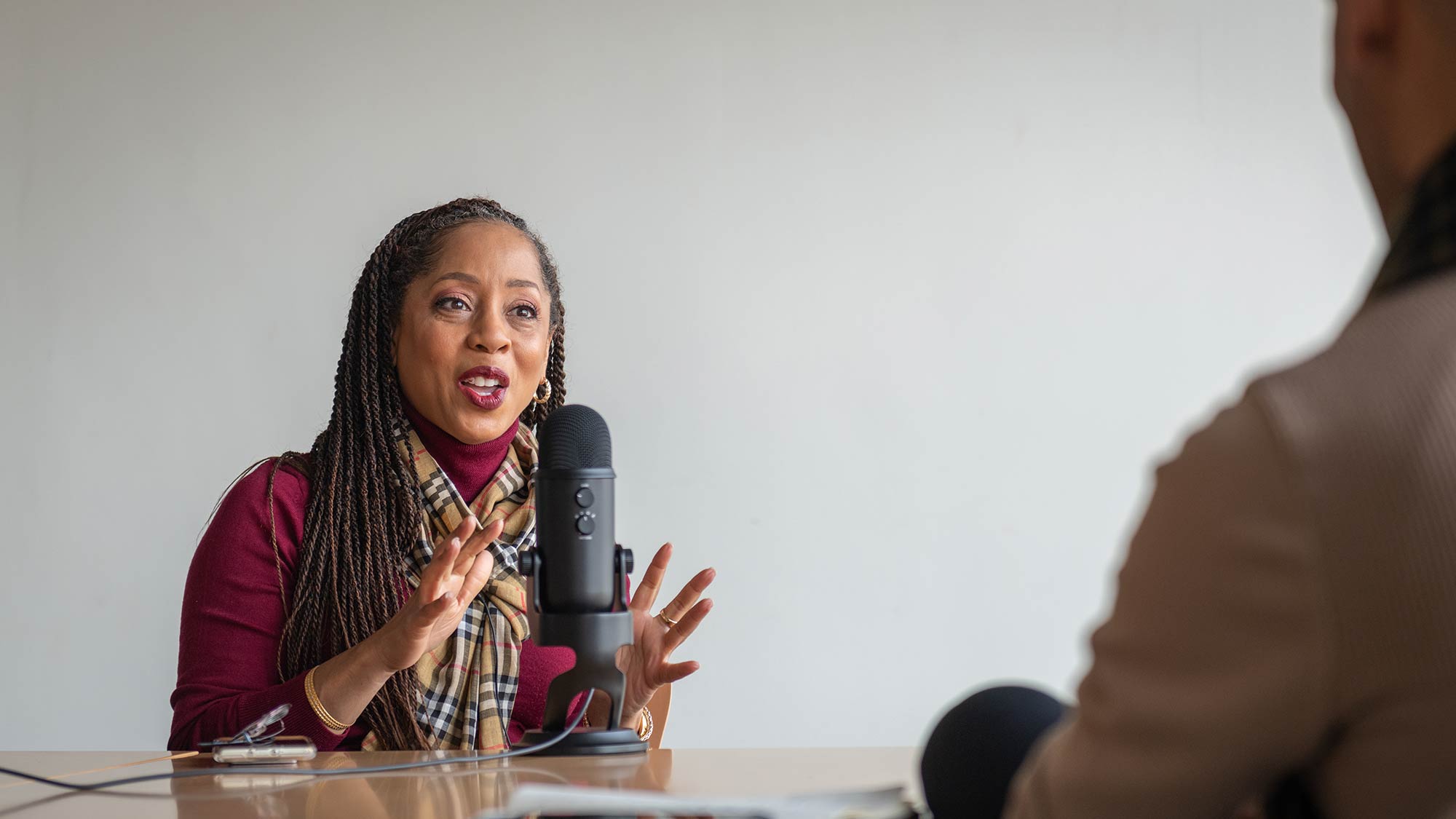Research can be a potent thing. It generates new knowledge, defies norms, makes a difference, and can drive action. Case in point: Clark’s Mosakowski Institute for Public Enterprise. Led by youth mental health expert Nadia Ward, the Institute is directing its intellectual resources toward confronting a mental health crisis among young people that the U.S. surgeon general has labeled as “devastating.” Its immersive, technology-assisted approaches aim to effectively treat behavioral health issues among adolescents and young adults, with a special emphasis on young men of color.

Developing technology to benefit America’s youth
Central to those efforts is the institute’s MI PEACE app, which gives school counselors a platform to create and collaborate on plans to coordinate care, facilitate wraparound services, and monitor student mental health progress. The app also provides counselors and approved administrators data regarding mental health screening results and highlights students’ strengths and stressors.
The app is but one of the evidence-based services, tools, and technologies developed by the Mosakowski Institute, which also incorporates a social development curriculum and sensory immersion room into its continuing efforts to address the emotional, academic, and mental health needs of young people … and keep a crisis at bay.
When mental health practitioners identify a useful intervention—an evidence-based practice to improve a patient’s life—it can take as much as 15 or 20 years of testing and research to get it into the hands of people who want to use it in their work with young people, says Ward, professor of practice in education and psychology.
“We actively consider how we can create an evidence base for the resources and tools we are building,” she explains, “while simultaneously marketing and scaling them so that practitioners can more quickly use them with youth and their families.”

